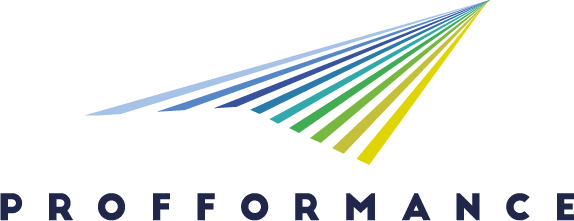RICE
Research in Chemistry Education
- 01 - Education
- 05 – Natural sciences, mathematics and statistics
4. Impact and mission with and for society
- Research-based teaching and learning
- Active involvement of students in teaching-related research projects to improve their learning
- Promoting social responsibility through teaching professional and ethical values
- Teaching through real social projects addressing society’s global challenges
The previous curriculum for pre-service chemistry teacher education included the following main components: chemistry knowledge and interdisciplinary links (e.g., connections to physics and mathematics), laboratory and practical skills, pedagogical content knowledge (PCK) in chemistry, educational theory and psychology, technology integration, and practical teaching experience. In light of the rapid changes in society, the growing emphasis on inclusion, and the push for internationalization, it has become essential to prepare future teachers to apply research methodologies in education. This will enable them to identify and implement innovative solutions tailored to the evolving needs of their classrooms, local communities, and society as a whole. Evidence-based research empowers teachers to make informed decisions about improving teaching practices. The outcomes of the newly introduced course named Research in Chemistry Education are that pre-service chemistry teachers will be able to: 1. Identify inclusive, culturally responsive, and sustainable research questions or formulate hypotheses related to chemistry teaching and learning. 2. Design research projects that address educational challenges in chemistry, incorporating both local and global perspectives. 3. Apply appropriate research methodologies, including action research. 4. Develop and prepare valid and reliable research instruments, such as tests, questionnaires, interview protocols, and observation tools. 5. Collect data systematically, perform statistical analyses, and interpret results to derive meaningful conclusions and implications for inclusive and sustainable teaching practices. 6. Reflect critically on their own teaching practices, using research findings to inform and improve their approaches. 7. Write detailed research reports that effectively communicate findings and recommendations. Key activities in the course include: • Developing a theoretical framework for quantitative, qualitative, and mixed research methodologies, with a focus on action research. • Learning about research instruments, data collection, processing, and presentation. • Planning, presenting, and discussing project designs, followed by iterative improvements based on feedback. • Conducting research in primary and secondary schools, collecting and analysing data. • Preparing detailed reports and presenting research findings to diverse audiences, including students, scientific meetings, and professional or scientific
Methodology
Tools, equipment, technology used
Outcomes and outputs, main results
Lessons learnt
Adaptability and sustainability of the best practice (for other institutions)
Promotion of best practice
Scope and impact
- Faculty level
- Institutional level
- National level
6.1 Digitalization
- Digital skills development and assessment both general and profession-related, embedded in course design, in teaching and assessment
- Digital scientific sources used in T&L
- Data security and responsible digital presence embedded in learning outcomes
Reasoning: Our practice promotes the development of digital skills by integrating digital tools and technologies into various academic tasks. Students engage in activities such as conducting literature reviews, preparing research instruments, presenting research projects and reports, and processing data, all of which involve the use of digital tools.
6.2 Internationalization
- Developing students' multicultural awareness
- International projects/research results embedded into course development and T&L
Reasoning: The course focused on developing multicultural awareness and its significance in supporting students from diverse cultural backgrounds. It also explored similarities and differences in the outcomes of chemistry education studies across countries. Before conducting their research, pre-service chemistry teachers consulted with practicing chemistry teachers in sampled schools to assess the relevance of planned activities for culturally diverse students.
6.3 Inclusion and diversity, universal design
- Innovative teaching methodology for inclusion and meet diverse student needs
- Senzitivizing students to consider special needs when practicing their profession
- Course includes hints on how the services/products of the profession could be universally designed/inclusive
Reasoning: Pre-service chemistry teachers are introduced to the concept of inclusion in other courses within the study program, but the RICE course offers a unique opportunity to address the special needs of students in the schools where they plan to conduct research. Discussions with in-service chemistry teachers, combined with their own observations, play a vital role in understanding the diverse needs of students and designing adapted activities to meet those needs.
6.4 Sustainability
- Sustainability goals are addressed in the course(s)
- Teaching material contains profession related sustainability aspects
- Environmental attitude, skill development and assessment either general or profession-related
- Sustainability aspects are considered in all phases of the learning practice - "hidden curriculum"
Reasoning: During the course, pre-service chemistry teachers are introduced to education for sustainable development, a key paradigm in modern education. The course emphasizes the sustainable development goals (SDGs) and their connection to chemistry education, supported by relevant scientific publications. Consequently, students often design research proposals that focus on applying chemistry knowledge to solve everyday problems, inform decision-making, and promote actions aligned with the SDGs. In previous years, pre-service chemistry teachers enrolled in the course explored the environmental attitudes of chemistry students and teachers, incorporating SDGs and green chemistry principles. Furthermore, sustainability aspects are deeply embedded in the course design, as the research findings from each cohort can serve as a foundation for action research conducted by future cohorts.
3.3 Public contact datas
| Name | Email address | Website |
|---|---|---|
| Dragica Trivić | dtrivic@chem.bg.ac.rs | https://chem.bg.ac.rs/predmeti/664P2-en.html |

